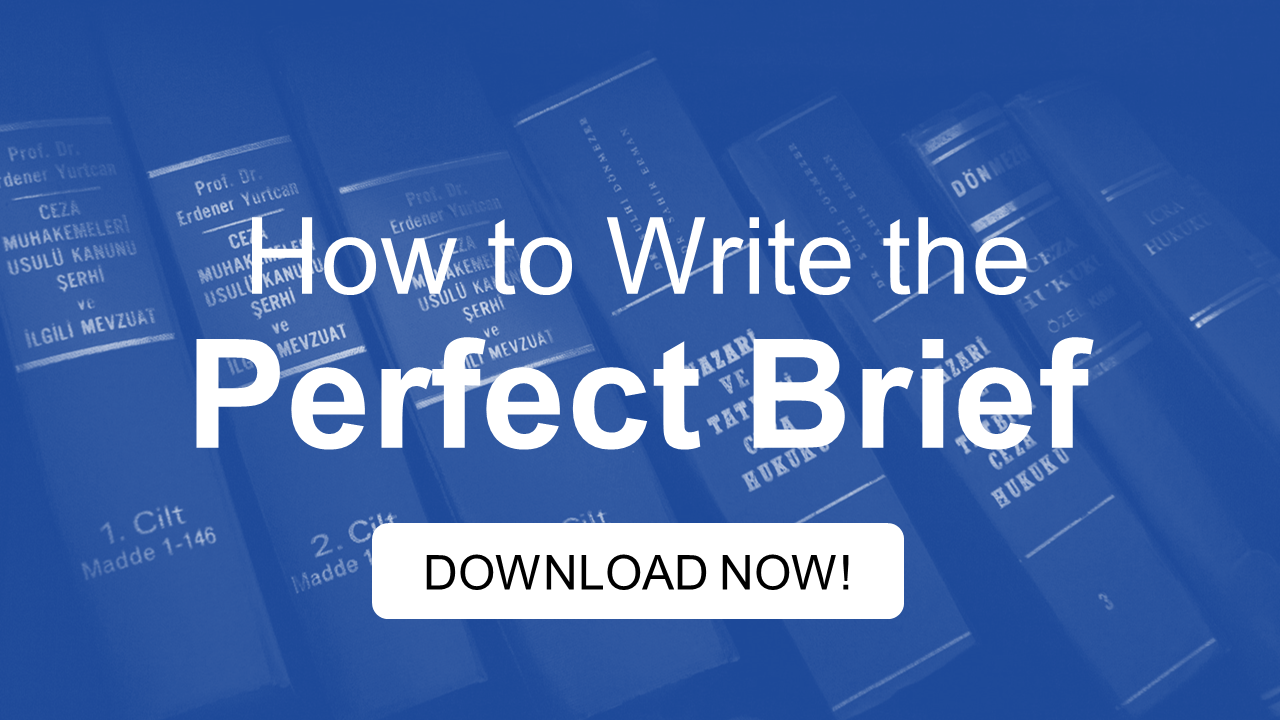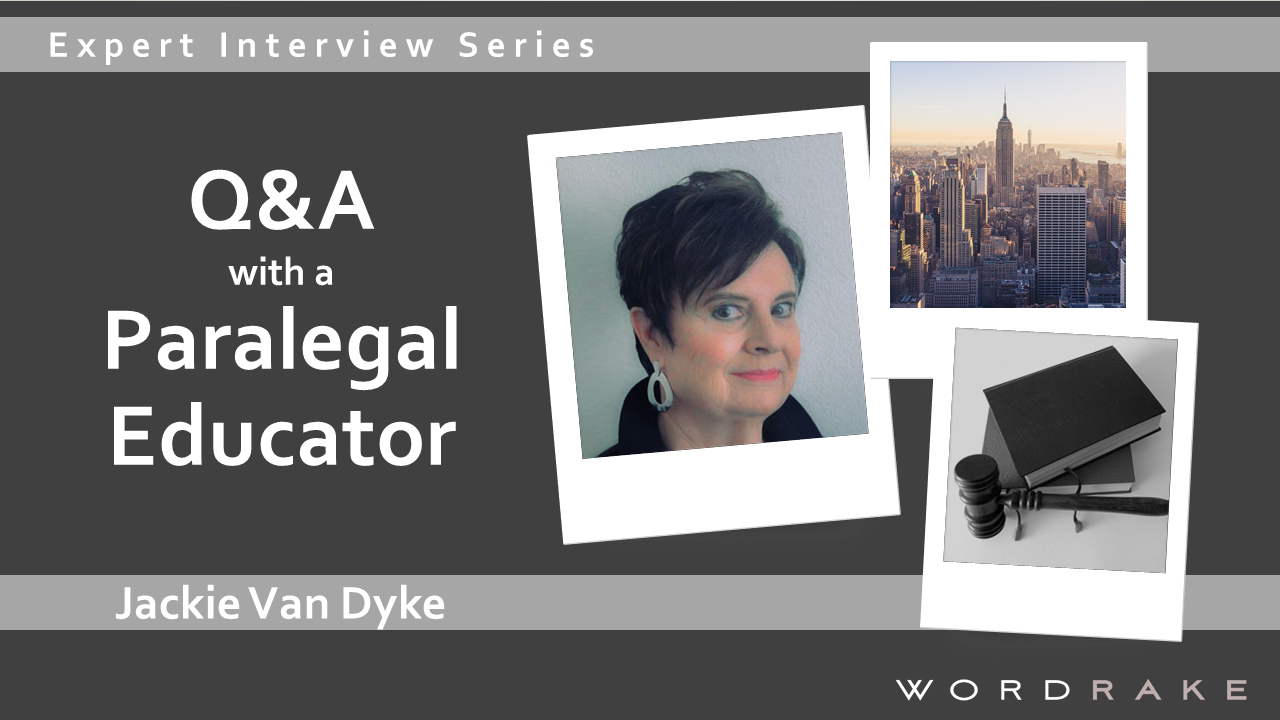A strong legal case needs paralegals with strong writing skills: a paralegal’s writing sets the foundation for important legal documents, which can impact case outcomes. Unfortunately, wordiness and lack of clarity can easily become bad writing habits for paralegals. Intentional word choice and editing can turn your writing from mediocre and rambling to powerful and precise. In this article, we’ll cover a few sources of wordy habits and keys to good legal writing.
Wordiness in Paralegal Writing
One of the top skills for a successful paralegal to master is good legal writing, which takes time. As we become more comfortable with legal writing, each paralegal develops a unique “writer’s voice”—favored word choice, tone, sentence structure, and punctuation. Sometimes, we become too comfortable, leaning on sentence and paragraph structures that repeat themselves, often to the boredom of our audience.
Deadlines can also make good writing difficult. We find ourselves up against another tight deadline—the attorney needs the draft now. One can feel rushed and tense with little time to think through a logical order of the words on paper, let alone which words should or should not be included.
Between time pressure and one’s writing habits, it’s easy to default to wordiness. How often do we use the same familiar introductory phrases which add nothing to the context of the sentence? Avoid the temptation to keep every word you threw down on the page first. Writing with clarity and conciseness (aka brevity) is my moniker. Wordiness pushes us over word count and loses our audience's attention, while mindful word choice can improve the quality of our writing and the reader’s experience.
The Antidote: Mindful Writing and Editing
Here are a few guiding principles to weed out wordiness and reclaim clarity as we draft our documents:
Avoid Legalese
We want to avoid legalese and jargon unless we assume legalese will impress the client or add prestige to the work. Admittedly, some legal professionals hold that using specific legal terms and phrases adds precision to their writing and helps readers understand the message. Consider your audience to decide whether insider phrases will enhance meaning for your readers or leave them in the dark.
Be Direct
Finding a way to focus on content while remaining cognizant of clarity and conciseness requires effort. We remember hearing one of our professors say, “Write as you speak.” Say what is important and required without the fluff. For example, why write “expeditious” when the word “quick” works just as well? Simplifying one’s words provides clarity and helps to avoid confusion or misinterpretation.
Eliminate Extra Words
We writers often use doublets and triplets, add unnecessary words, and write in passive voice. These habits sneak up on us unnoticed. For example, how often is the phrase “sworn testimony” used when the term “testimony” is sufficient? As paraprofessionals, we owe it to our customers and ourselves to be skilled and intentional in our word choices.
Edit in Multiple Ways
Remember not to submit a quickly written draft with careless errors. Take time to use available tools for editing and proofreading, but don’t forget the importance of human review. Using familiar spell-checking features alone cannot guarantee that our work is spelled correctly. The term to can easily get through spell check even though we meant to type too. What if one types their when intending to use the word there? These gaffes are intolerable to most lawyers and reflect poorly on our credibility. Use editing software wisely—it complements and speeds up your review process but doesn’t replace editing by you and your reviewers.
That said, there is legal editing software more advanced than a basic spell checker that can quickly open your eyes to writing improvements you might not have considered. For example, I was recently encouraged to try WordRake. Wow! First, the download experience was seamless, which is gold for a non-techie person like me. The WordRake tab now appears at the top of each Word document with easy-to-identify icons for simplicity, brevity, and complexity. The Help feature is also very user-friendly.
WordRake is a software option that helps paralegals become better communicators. Why not try WordRake? I plan to continue regularly exploring and using the software when drafting my professional documents. I look forward to sharing specific examples of WordRake’s helpful features and edits with you in a subsequent blog post. Stay tuned…
Conclusion
Writing impacts our clients and our firm, which is why paralegals of all levels of experience, from seasoned legal writers to those working their first paralegal job, will benefit from revisiting good writing and editing techniques. Practicing clear and concise writing and dedicating time to thoughtful editing takes work, but it’s necessary for high-quality legal documents and emails. Paralegals must master the balance between including all necessary information, meeting deadlines, and keeping sentences simple and easy to follow so their message packs a punch.
About Jackie Van Dyke
Jackie Van Dyke, MPS, CP®, is a paralegal turned lecturer, graduate professor, course content creator, and published writer. She is the founder of the Paralegal Writer™, a professional development program that offers online writing courses and workshops for paralegals and paralegal students. For more from Jackie, find her on LinkedIn, Twitter, or Instagram and visit TheParalegalWriter.com.
Series on Paralegal Writing
This article is the first in a series of three articles on paralegal writing by paralegal educator Jackie Van Dyke, MPS, CP®. When your words count and deadlines are looming, WordRake editing software can help. At the click of a button, it quickly identifies opportunities to improve the clarity and brevity of writing. Its edit suggestions appear in the familiar track-changes style, and you decide which edits to accept or reject. Lawyers and paralegals worldwide use WordRake to strengthen their writing. Try WordRake free for 7 days.









